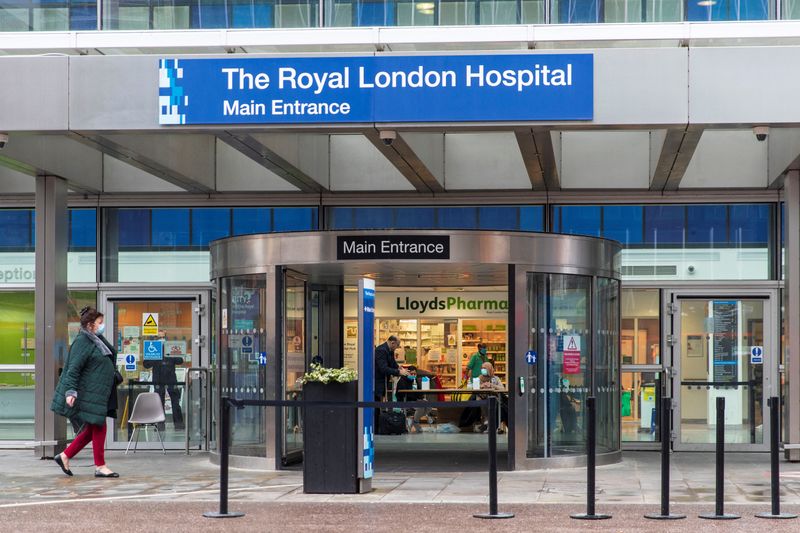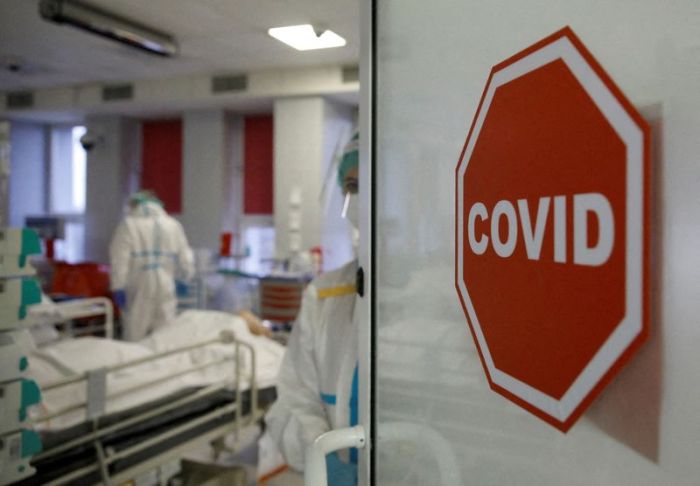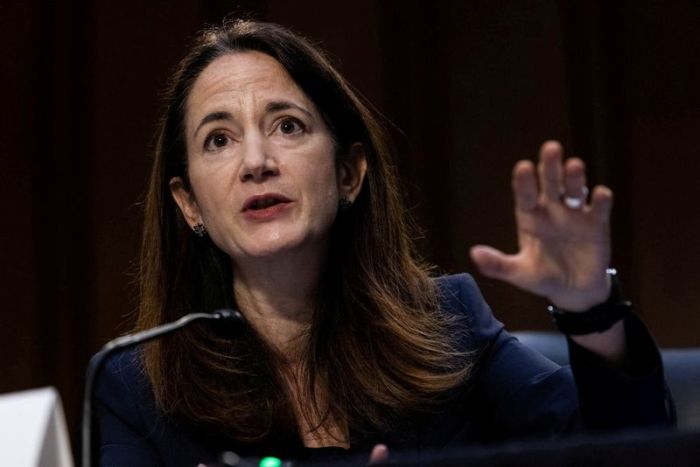LONDON (Reuters) -The risk of hospitalisation with the Omicron variant of coronavirus is about one-third that of the Delta variant, according to British analysis of more than a million cases of both types in recent weeks.
Britain is experiencing a surge in COVID-19 cases driven by the highly-transmissible Omicron variant, with record daily infections of 189,846 reported on Friday.
While hospital admissions have started to rise, the government has said it believes the new variant is milder than the Delta variant.
The number of patients needing mechanical ventilation beds has also remained steady through December, unlike previous peaks in the pandemic.
The analysis was published by the UK Health Security Agency, after it worked alongside Cambridge University MRC Biostatistics unit to analyse 528,176 Omicron cases and 573,012 Delta cases.
It also found that vaccines can work well against Omicron.
“In this analysis, the risk of hospitalisation is lower for Omicron cases with symptomatic or asymptomatic infection after 2 and 3 doses of vaccine, with an 81% … reduction in the risk of hospitalisation after 3 doses compared to unvaccinated Omicron cases,” the UKHSA said.
Susan Hopkins, Chief Medical Adviser at UKHSA, said the analysis was in keeping with other encouraging signs on Omicron but said the health service could still struggle with such high transmission rates.
“It remains too early to draw any definitive conclusions on hospital severity, and the increased transmissibility of Omicron and the rising cases in the over 60s population in England means it remains highly likely that there will be significant pressure on the NHS in coming weeks,” she said.
Friday’s daily data update showed 12,395 patients in hospital in England with COVID-19, up from 11,542 on Thursday and continuing a steeply rising trend. However, the figure is well below a peak of more than 34,000 in January.
(Reporting by Kate Holton and William James; Editing by Michael Holden and Jan Harvey)

























